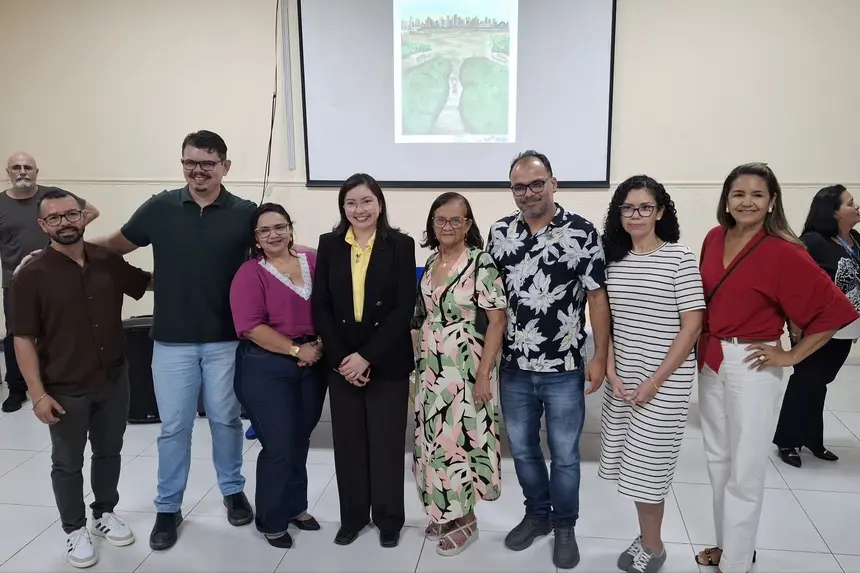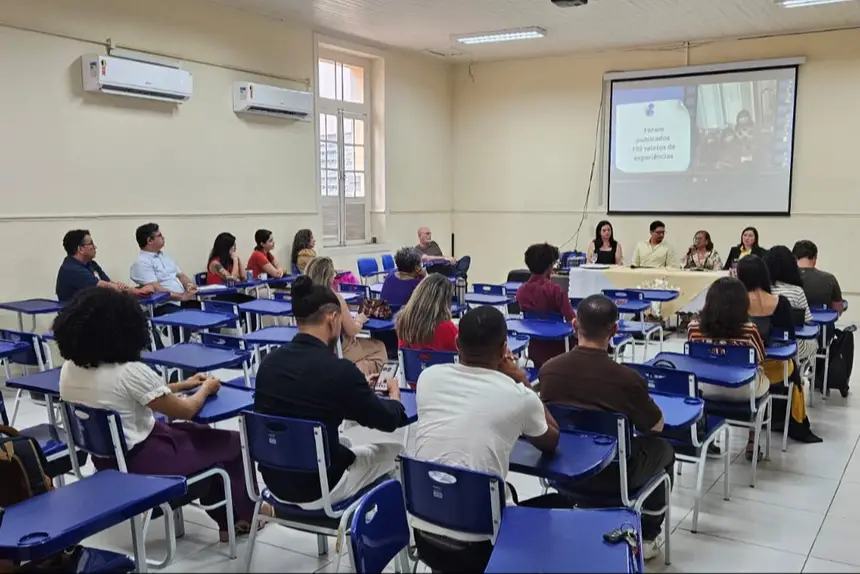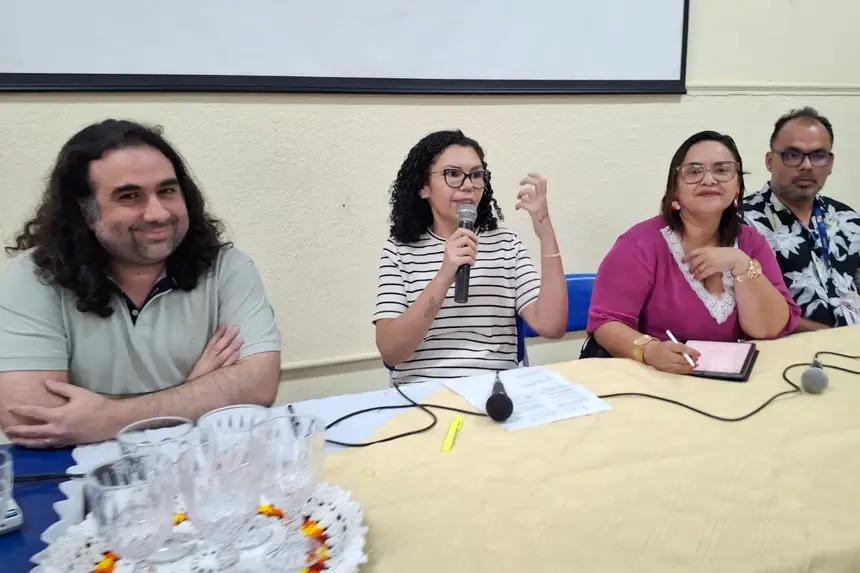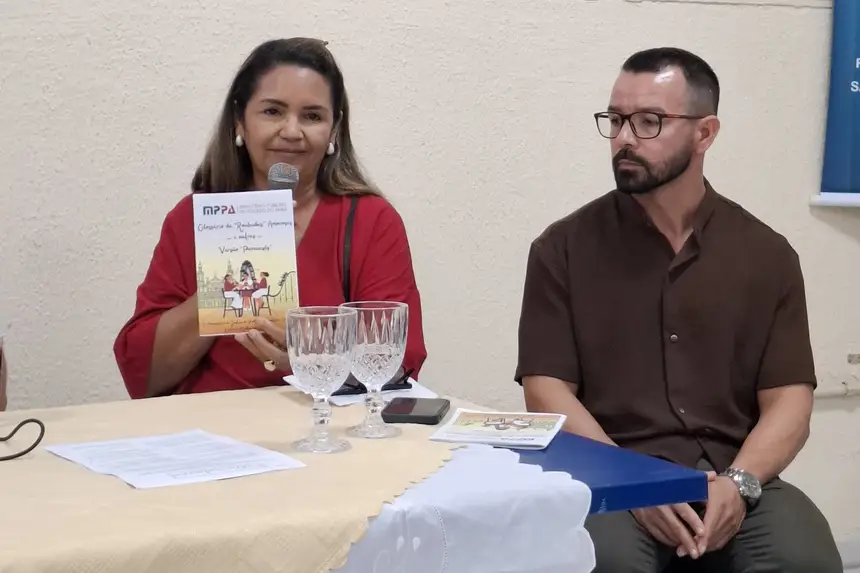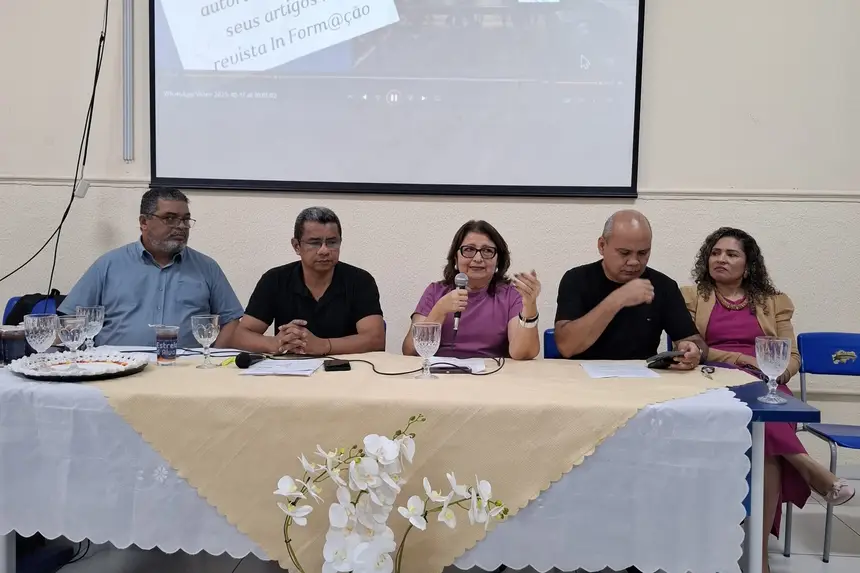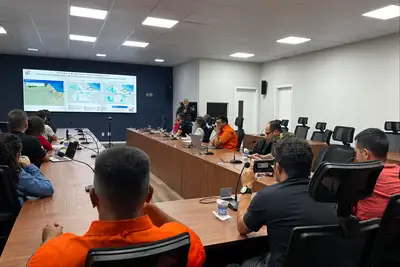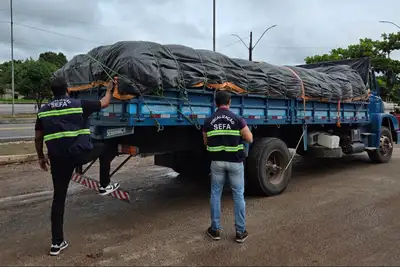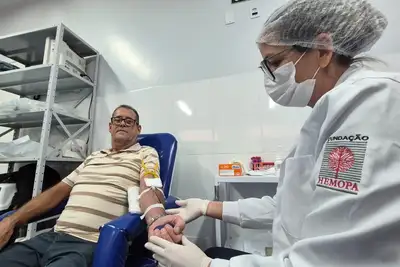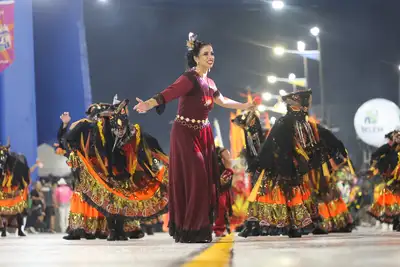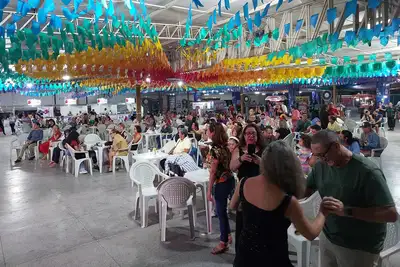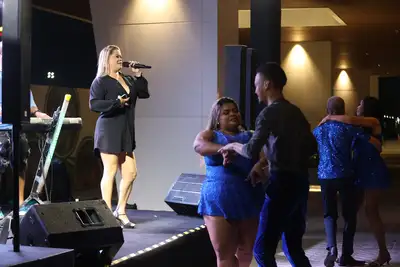Seduc launches new edition of the magazine “Entre Saberes” focusing on pedagogical practices and sustainability
Digital publication brings together experiences of educators from the public school system in Pará and values the role of teachers in ongoing training
The State Department of Education (Seduc) launched, this Friday (17), the 14th edition of the magazine “Entre Saberes – Focus on Experience Reports”, a digital publication that gathers pedagogical practices and experiences developed by teachers from the state and municipal public school systems in Pará. The initiative is led by the Center for Training Public Education Professionals of Pará (Cefor) and aims to strengthen ongoing training and value the intellectual production of educators.
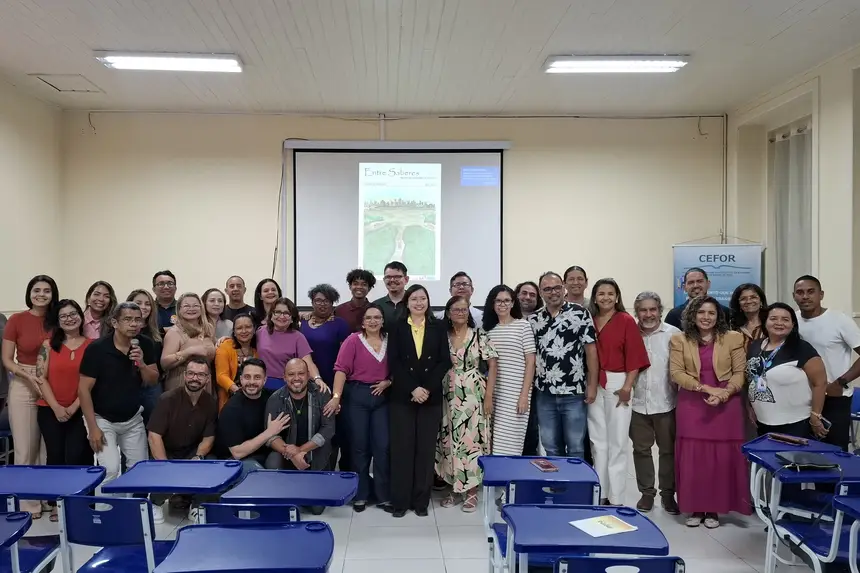
More than an institutional editorial product, the magazine consolidates itself as a space for dialogue between theory and practice, bringing the knowledge built in schools closer to academic reflection and encouraging the role of teachers in knowledge construction. To access the magazine, click the link!
“Entre Saberes plays an essential role in giving visibility to the intellectual production of education professionals in Pará, encouraging writing, critical reflection, and the dissemination of transformative pedagogical practices,” highlighted Raimundo Oliveira, director of Cefor.
Highlights of the edition
The new edition of the magazine presents 12 reports of pedagogical experiences that stand out for their diversity, cultural identity, promotion of student autonomy, and integration between education and sustainability in the Amazon region of Pará. The launch featured thematic tables and presentations by authors from different regions of the state, who shared their practices with the participants.
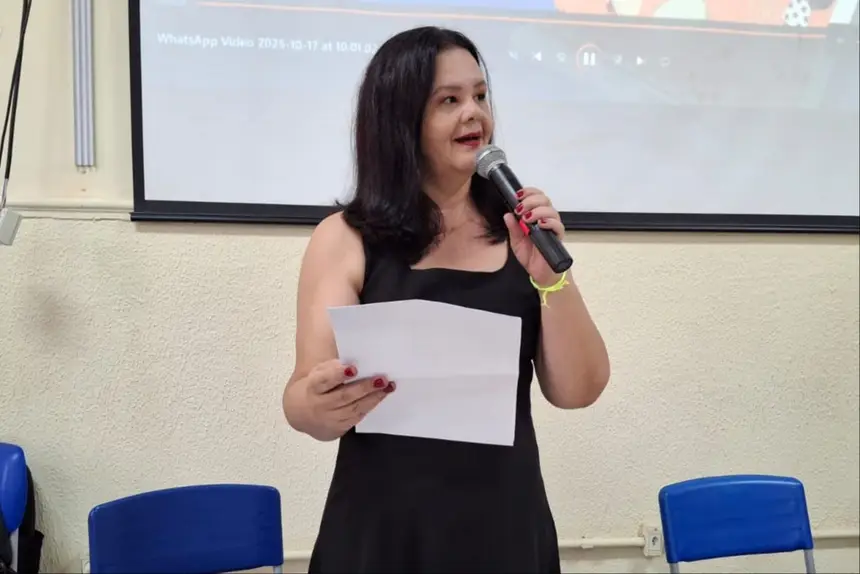
Among the published articles is “Love or Dangerous Relationships? How to Identify and Avoid Dangerous Relationships,” by Professor Maria do Perpétuo Socorro de Oliveira, from the State School Professor Maria da Conceição Malheiro, in the municipality of Irituia. The work addresses abusive relationships often confused with demonstrations of affection and uses as a reference the glossary of “dangerous relationships,” developed by the Public Ministry of the State of Pará.
“Our work was inspired by the glossary of ‘dangerous relationships’ from the Public Ministry of the State of Pará and seeks to help students recognize and avoid dangerous relationships,” explained the professor.
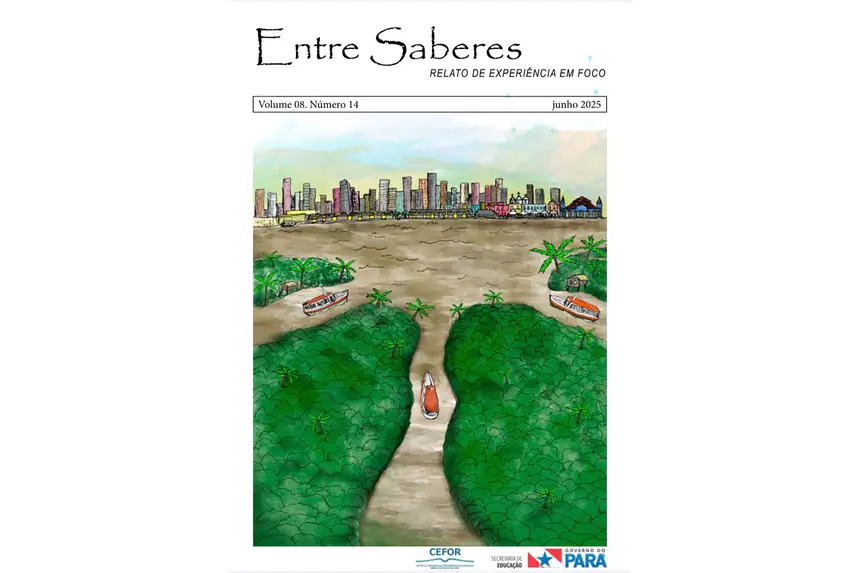
Another highlight is the article “Living Backyards of the Amazon: the Sustainable Future is Now and Starts with Environmental Education in Agroforestry Backyards in Vila do Arimbú,” prepared by teachers Viviane Silva Pereira and Ailton Nascimento, from the Modular High School of the state network, in Bragança. The proposal advocates agroforestry backyards as educational spaces, cultural resistance, and a response to climate change.
“Agroforestry backyards are concrete practices for confronting climate change and environmental rebalancing, as preservation arises from affection and Amazonian identities. More than cultivation spaces, they are spaces of resistance and environmental education built by ancestry,” emphasized Professor Viviane Silva.
With a semiannual frequency, the magazine Entre Saberes integrates the strategic actions of Seduc to strengthen the ongoing training of education professionals, encourage pedagogical innovation, and value the good practices developed in public schools in Pará.



